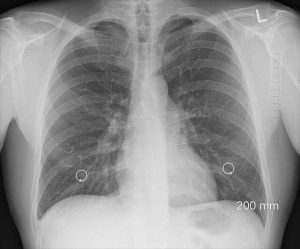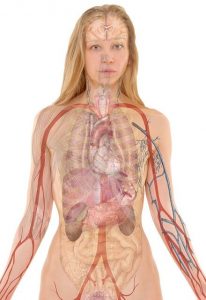A pulmonary function test (PFT) is a set of medical tests that is performed to find out if your lungs are functioning properly. It determines the condition of your lungs as you breathe. It also measures how effective your respiratory organs are in distributing the oxygen into the bloodstream and to the other parts of your body. Some of the most common tests are the following:
- Spirometry Test – measures the exhaling capabilities of the lungs; results of this test is used to diagnose lung disorders and obstructive lung diseases such as like asthma, chronic obstructive pulmonary disease (COPD), and bronchitis
- Lung Volume Measurement – finds out whether the patient has a restrictive lung disease or not
- Diffusing capacity of the Lungs for Carbon Monoxide or DLCO – determines how effective the lungs are in delivering oxygen to the body

Doctors usually order a PFT under either of these circumstances:
– if you are experiencing any symptom of a lung problem;
– to monitor the efficacy of a certain medicine in treating a certain lung disease;
– to evaluate the functionalities of your lungs before undergoing a surgery; or
– if it is required in a routine physical activity.
Cost of a Pulmonary Function Test
After you giving the basic information about a PFT, let’s get to know how much a pulmonary function test cost as of the present time. The cost of a PFT can range from $40 to $800, significantly depending on the what types of tests and how many are needed as advised by the physician, as well as the place where the tests are performed. Here are some estimated prices of specific tests involved in a PFT:
– Spirometry Test $42 to $569
– Lung Function Test $129
– DLCO $456
The pulmonary function test price may be lesser or free of charge if the patient has a medical insurance. In the event when the doctor sees the PFT as a necessary test, the insurance provider may cover, at least, 80 percent of the total cost or pay everything on your behalf. But it still depends on the insurance coverage a patient has availed.
However, there are instances when the PFT cost does not cover the payment of doctor’s visit and/or consultation, which is needed before getting the medical tests. As such, this additional cost is around $25 to $100 per visit.
Discounts on a PFT Cost
In cases when you don’t have a medical insurance to help you cover the PFT cost, there are other ways to get discounts or sponsorships.
The COPD Foundation, an organization based in Florida and Washington, has its Mobile Spirometry Unit that offers free lung function testing and COPD screening. Respiratory therapists from different parts of the United States administers the screenings and tests.
Aside from non-profit organizations, you can also take advantage of health fairs, which provide a wide range of tests for free. In fact, most of these events offer pulmonary function tests in locations where medical help is too scarce.
PFT Costs in Other Countries
The figures stated above are the estimated costs in the states. But did you know that you can get the same quality of pulmonary function tests in other countries at lower prices? Although you have to spend for the airfare and accommodation, the price of PFT is relatively more affordable, even if it is combined with other costs. Medigo has listed a few medical institutions from other countries where you can get cheaper prices pulmonary function tests.
- Revital Aspach in Aspach, Austria starts from $39
- International Hospital Center of Tunisia in Tunis, Tunisia starts from $40
- Abundant Health Medical Clinic in Singapore starts from $43
- Da Vinci Private Clinic in Pecs, Hungary starts from $60
- Hisar Intercontinental Hospital in Istanbul, Turkey starts from $134
- European Medical Center in Moscow, Russia starts from $200
You can also go to Germany, India, Israel, Malaysia, South Korea, Spain, Switzerland, and the United Arab Emirates.
Preparing for the PFT Test
Before undergoing the PFT test, take note of the following reminders:
– don’t eat heavy meal;
– don’t smoke 4 to 6 hours before the test begins
There will be cases when a patient is asked to stop using inhaled medications or the bronchodilators. Moreover, a patient may need to breathe in specific medicines before the tests are given or during the test itself.
You should also remember that you may experience lightheadedness or a temporary shortness of breath primarily because the test typically involves instances of rapid breathing and forced breathing. Aside from that, claustrophobic patients may feel uncomfortable since there is a part of the test where the patient is placed in a booth.
When you are given a PFT, you will wear a nose clip while breathing through a tight-fitting mouthpiece. As much as possible, follow the instructions when using the mouthpiece. If it’s not properly mounted, you may end up getting inaccurate results.
Normal Results of a PFT
According to MedlinePlus of the U.S. National Library of Medicine, normal values of PFT are based on the patient’s age, height, gender, and ethnicity, while results are written in percentages. However, the normal values may vary from one laboratory to another. It will be best to consult your doctor once you get the results of the tests.
And speaking of results, these are the various measurements that you usually see on every PFT report:
- Diffusion capacity to carbon monoxide (DLCO)
- Expiratory reserve volume (ERV)
- Forced vital capacity (FVC)
- Forced expiratory volume in 1 second (FEV1)
- Forced expiratory flow 25% to 75% (FEF25-75)
- Functional residual capacity (FRC)
- Maximum voluntary ventilation (MVV)
- Residual volume (RV)
- Peak expiratory flow (PEF).
- Slow vital capacity (SVC)
- Total lung capacity (TLC)
Abnormal Results and Their Meanings

Abnormal results are approximately less than 80 percent of the patient’s predicted value. If you get such results, it means that there is a possibility that you have a chest or lung disease. Some of these diseases are the:
– Obstructive Lung Disorders such as:
- Asthma
- Chronic bronchitis
- Emphysema
– Extreme Overweight
– Pulmonary Fibrosis
– Sarcoidosis
– Scleroderma
